Stovetop popcorn is, was, and will always be one of my favorite budget-friendly snacks. It takes only minutes to make, can be flavored with hundreds of different ingredients, both sweet and savory, and it is shelf stable. Really, what more could you want in a snack?? And if you’ve only experienced microwave popcorn, hold onto your seat. Stovetop popcorn is a whole different beast! The kernels are fluffier, have a better texture, and a more intense corn flavor. Once you go stovetop, you’ll never go back.
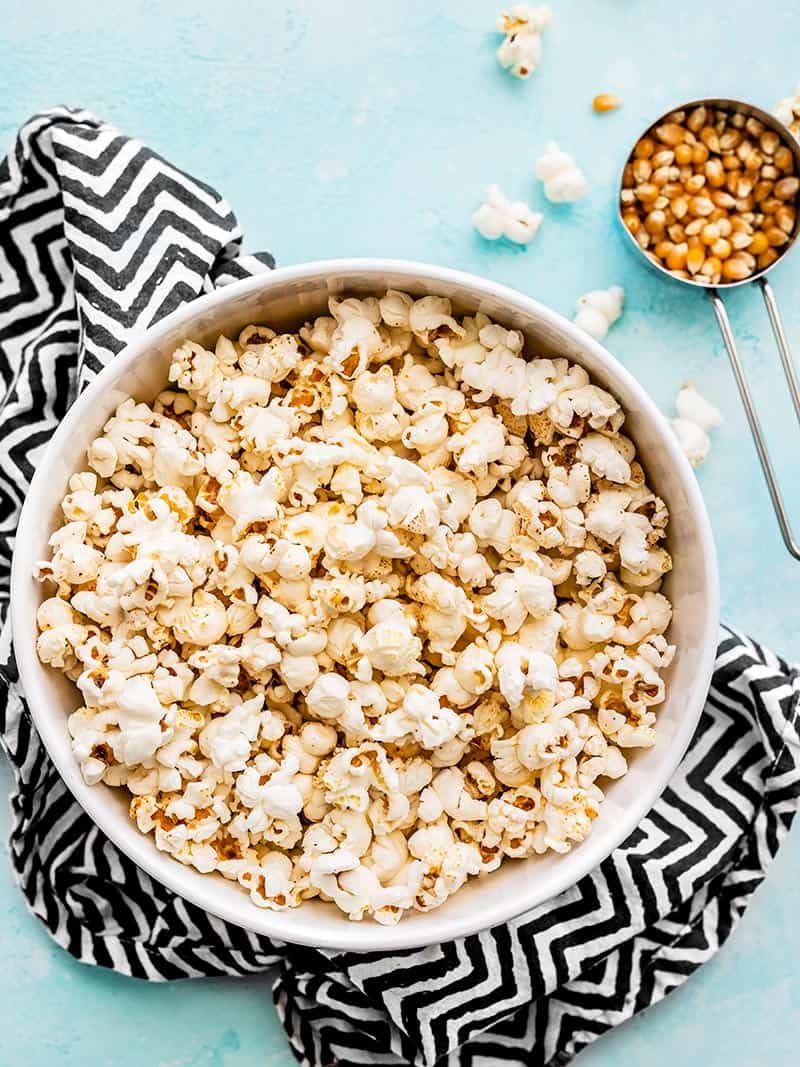
What Makes Popcorn Pop?
To understand how to make stovetop popcorn, it can help to understand what makes popcorn pop to begin with. Every dried kernel of corn still contains a small amount of moisture in the center. When that moisture heats up rapidly and turns into steam, pressure builds within the kernel until it eventually pops. To get the best pop you want the hottest oil and the fastest increase in temperature (which is why I don’t add the kernels until the oil is already hot).
What Oil Should You Use to Make Stovetop Popcorn?
Stovetop popcorn is all about the oil. The hot oil is what causes the kernels to pop into a big, fluffy, crunchy cloud and it’s important that you use an oil that can withstand a very high heat. If you use a lower heat oil, you risk the oil reaching its smoke point and then flash point, which will cause the oil to burst into flames (not good). To avoid this, make sure to use a “high heat” oil, or an oil that has a smoke point of 400ºF or higher. Some oils that have a high smoke point include (but are not limited to): vegetable, canola, corn, grapeseed, avocado, safflower, and sunflower oil.
Why is My Popcorn Always Small and Hard?
There are a few things that can cause popcorn to not pop into big fluffy pieces. Here are the most common reasons:
- Old kernels – if your popcorn kernels are very old, they won’t contain as much moisture in the center and therefor won’t pop as big.
- Not enough oil – if you don’t use enough oil, there won’t be enough to heat the kernels quickly and evenly, and you’ll get a lot of half-pops and small pops.
- Adding kernels to cold oil – When kernels heat up slowly with the oil the pop will be less dramatic and the pieces will be smaller.
How to Season Popcorn
My favorite part about popcorn is that you can literally add anything to it. My favorite go-to seasoning is Tony Cachere’s, but I also love plain salt and freshly cracked pepper. A little sprinkle of grated Parmesan is great, as is sriracha, truffle oil, nutritional yeast, or garlic herb seasoning. Oh, and butter. OMG butter.
And if you’re into sweet popcorn, butter, sugar, and cinnamon!
Share your favorite popcorn topping with me (and the rest of us) in the comments below!
How to Make Stovetop Popcorn for One
The recipe below makes about 8 cups, but you can also make a smaller 2-4 cup batch for one person. I usually do 1 Tbsp oil and 2 Tbsp corn kernels, making sure to use a very small sauce pot.
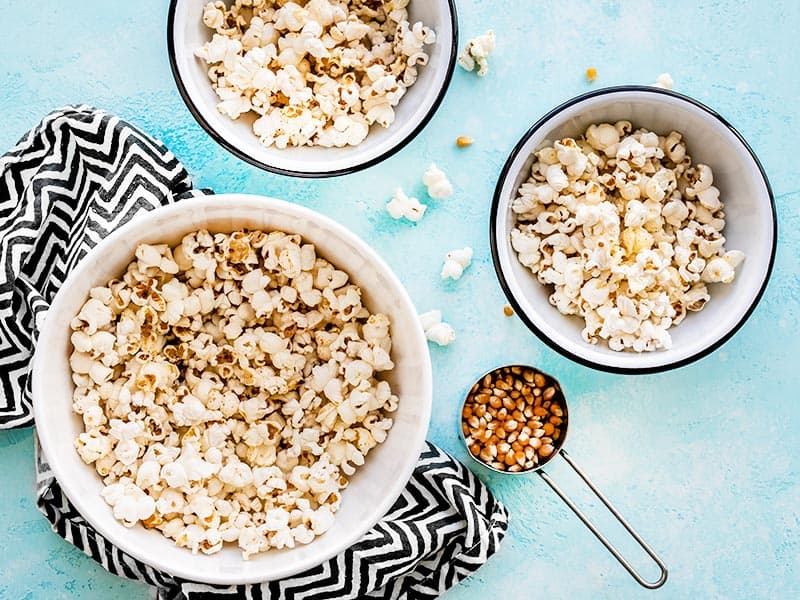
Easy Stovetop Popcorn Recipe

Ingredients
- 2 Tbsp high heat cooking oil* ($0.04)
- 1/3 cup popcorn kernels ($0.19)
- 2 Tbsp butter (optional) ($0.26)
- 1/2 tsp seasoning salt (optional) ($0.05)
Instructions
- Add the oil and one kernel to a large sauce pot. Place the lid on the pot and turn the heat onto medium-high. Wait for the test kernel to pop.
- Once the kernel pops, add the rest of the kernels, replace the lid, and give the pot a swirl to coat the kernels in the hot oil. Wait for the kernels to begin to pop. You can swirl again to redistribute the hot oil, if needed.
- Once the kernels begin to pop rapidly, crack the lid a little bit to allow excess steam to escape. Make sure it’s only open a little to keep the pot hot enough to continue popping the corn.
- When the popping slows to about one pop per second, turn off the heat. Wait a few extra seconds for the last few pops, then remove the lid and pour the popcorn into a bowl.
- Let the pot cool for two minutes or so, then add the butter to the still hot pot. Allow the residual heat in the pot to melt the butter, swirling the butter to maximize the contact with the hot pan. Drizzle the melted butter over the popcorn bowl, then sprinkle with seasoning salt or your favorite herbs and spices.
See how we calculate recipe costs here.
Notes
Nutrition
Do you love homemade popcorn recipes? Try this fun & easy Popcorn Balls recipe next!
How to Make Stovetop Popcorn – Step by Step Photos
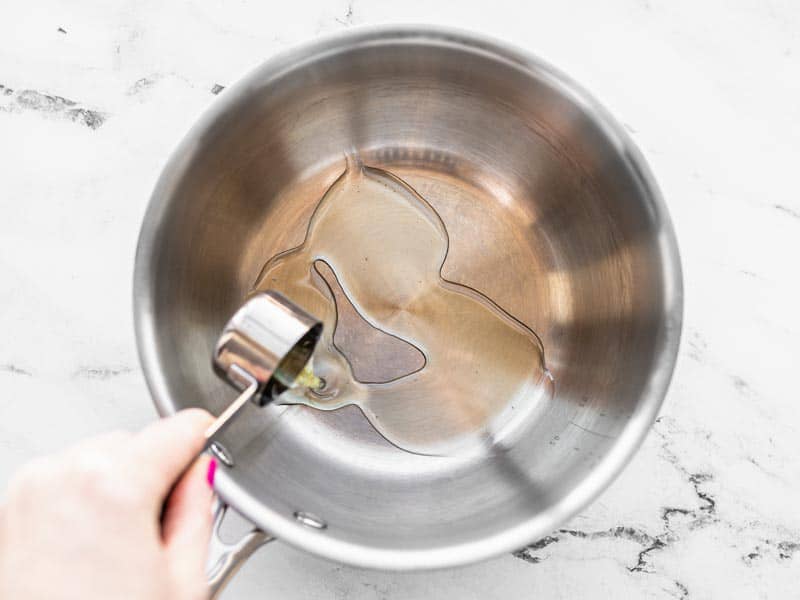
Add 2 Tbsp high heat cooking oil to a medium sauce pot. Examples of high heat cooking oils include (but are not limited to): vegetable, canola, corn, grapeseed, avocado, safflower, and sunflower oil.
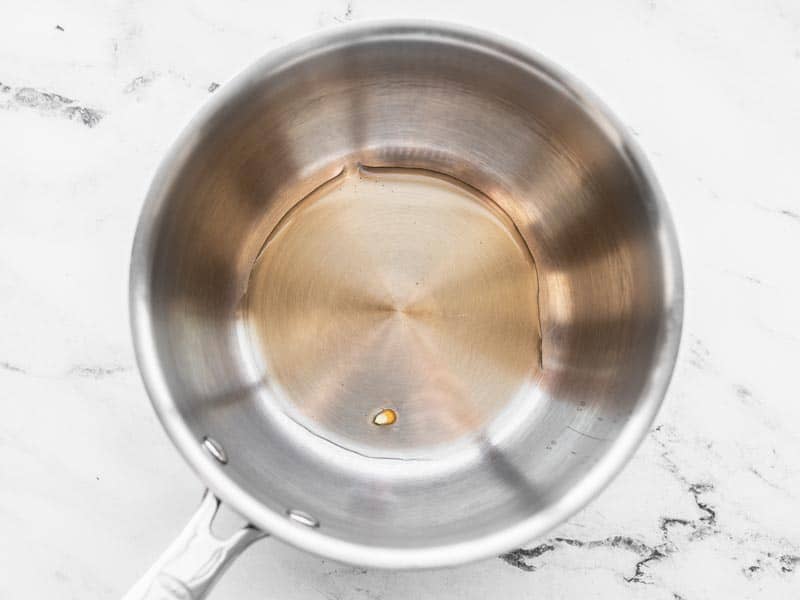
Add one “test” kernel to the pot. This kernel will be the indicator for when the oil is hot enough to add the rest of the kernels. Place a lid on the pot and turn the heat onto medium-high. Wait for the test kernel to pop.
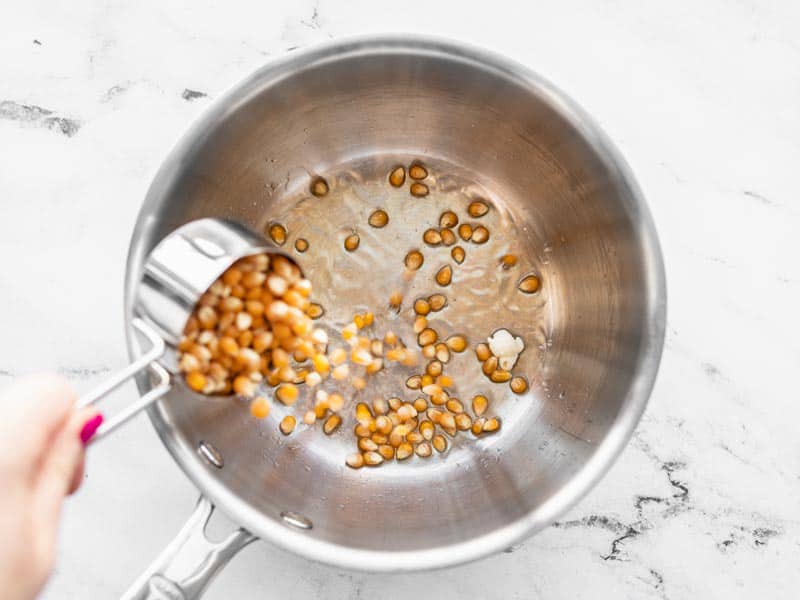
When the test kernel pops, remove the lid and add ⅓ cup of popcorn kernels. Replace the lid and swirl the pot a bit to coat the kernels in oil.
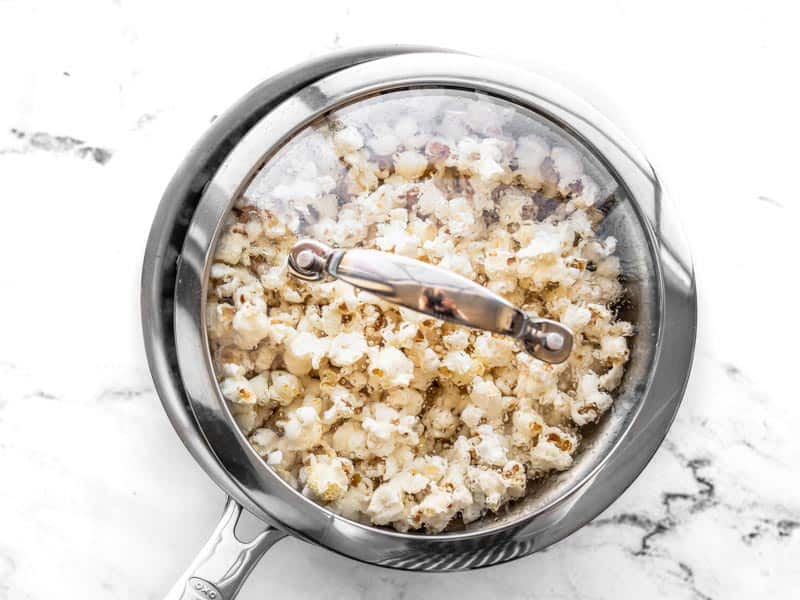
As the popcorn begins to pop, crack the lid on the pot just slightly to allow excess steam to escape (otherwise it will collect on the lid and drip down onto the popcorn). When the popping slows to about one pop per second, remove the pot from the heat and let it sit a few seconds more until the popping stops all together.
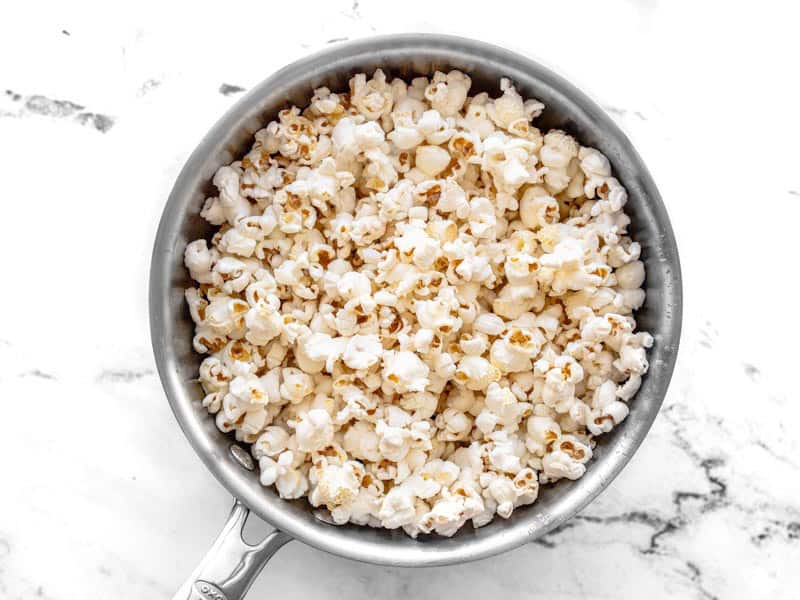
At this point you have a big pot full of fluffy popcorn, but it needs to be seasoned. Pour the popcorn off into a large bowl.
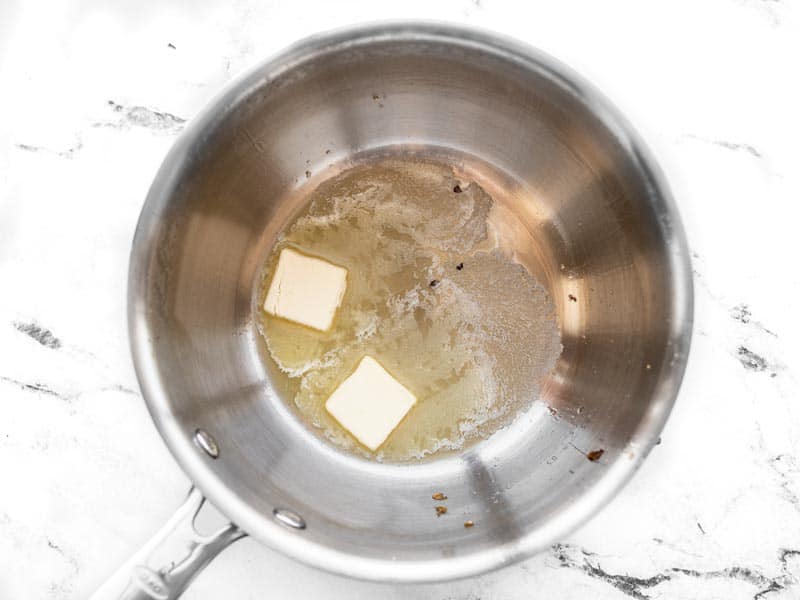
Let the pot cool for about two minutes, then add the butter. The pot should still be plenty hot enough to melt the butter. Swirl the butter to help it melt in the hot pot.
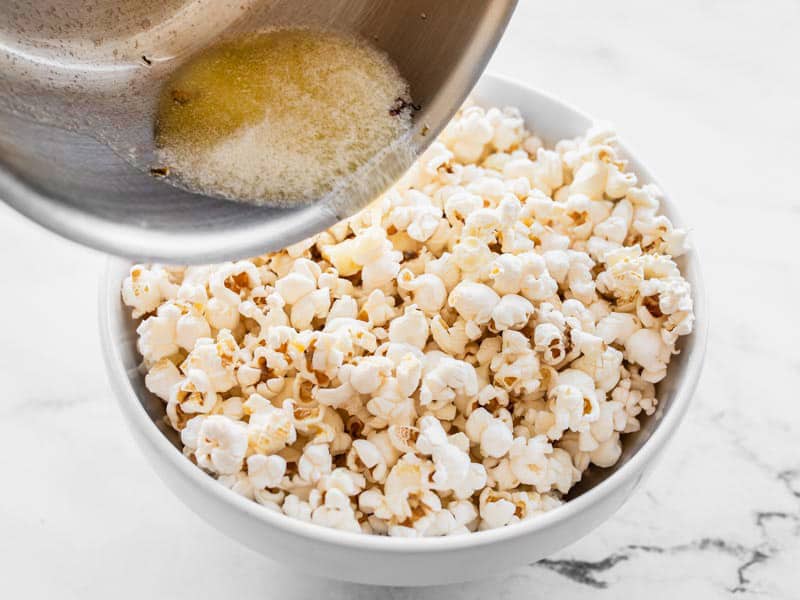
Drizzle the melted butter onto the popcorn.
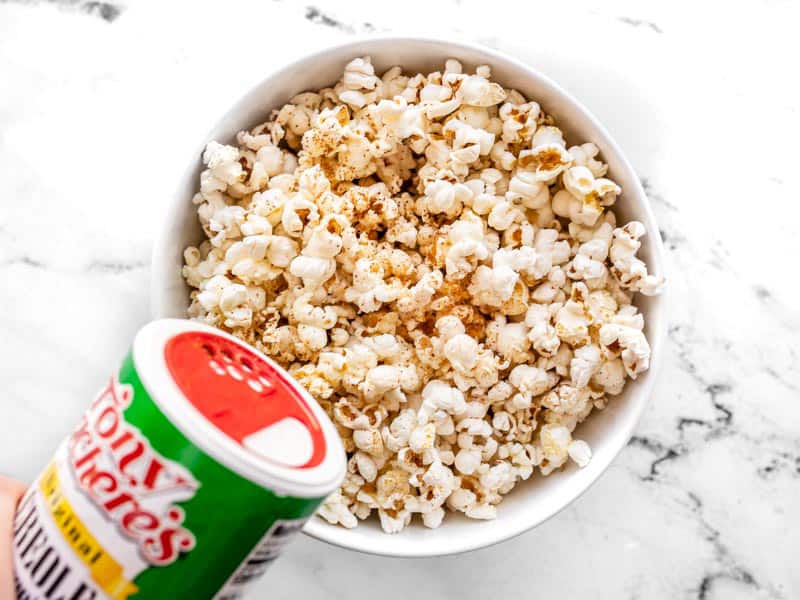
Then sprinkle seasoning salt or your favorite seasoning blend onto the buttered popcorn.
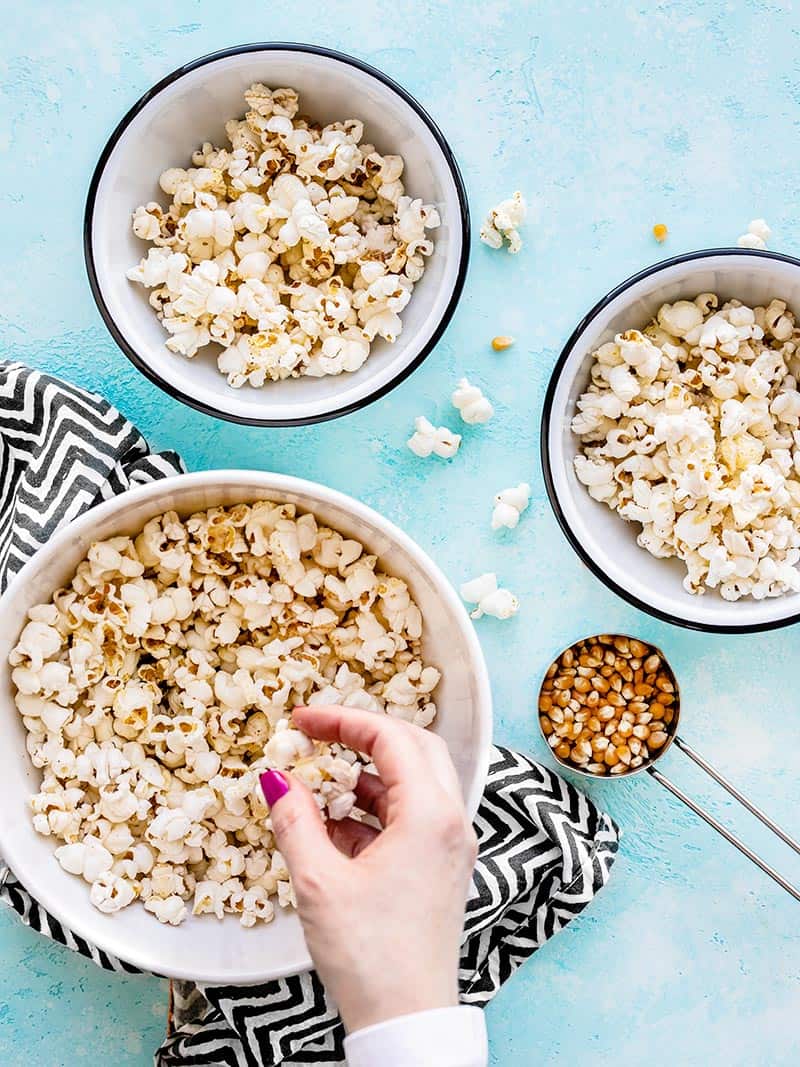
Dig in!


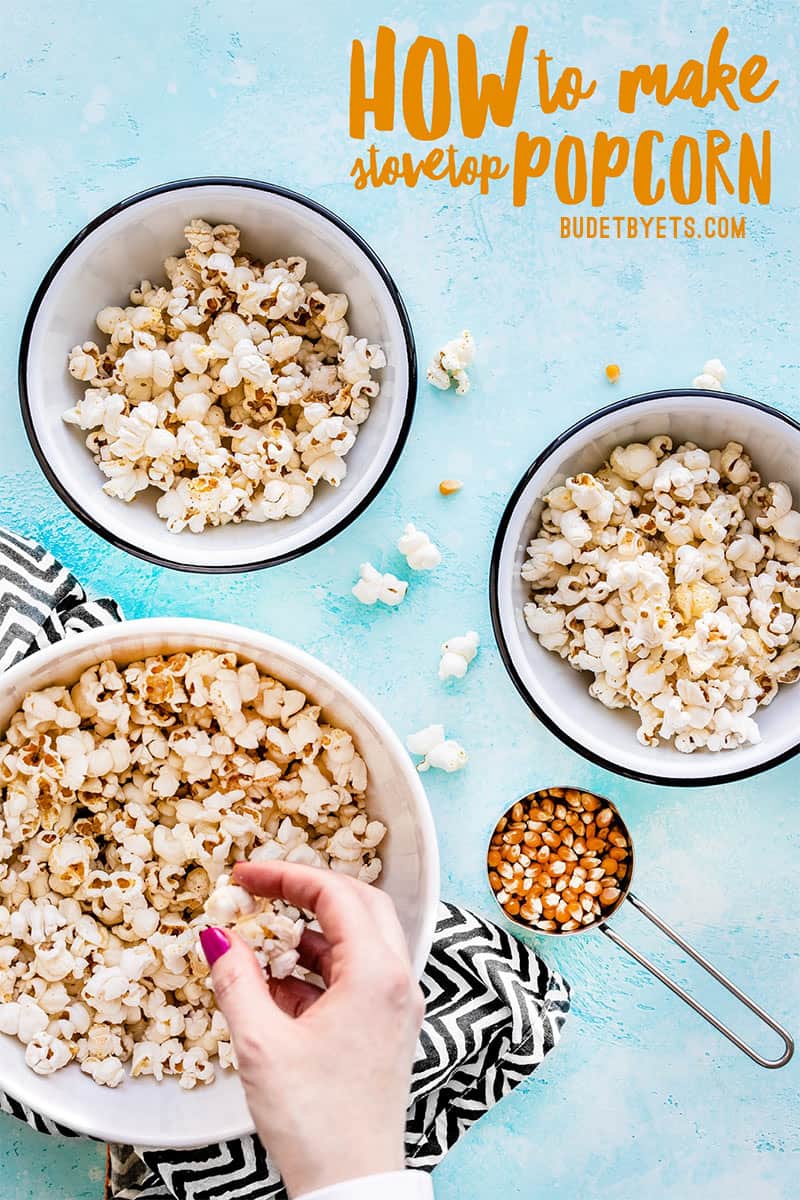
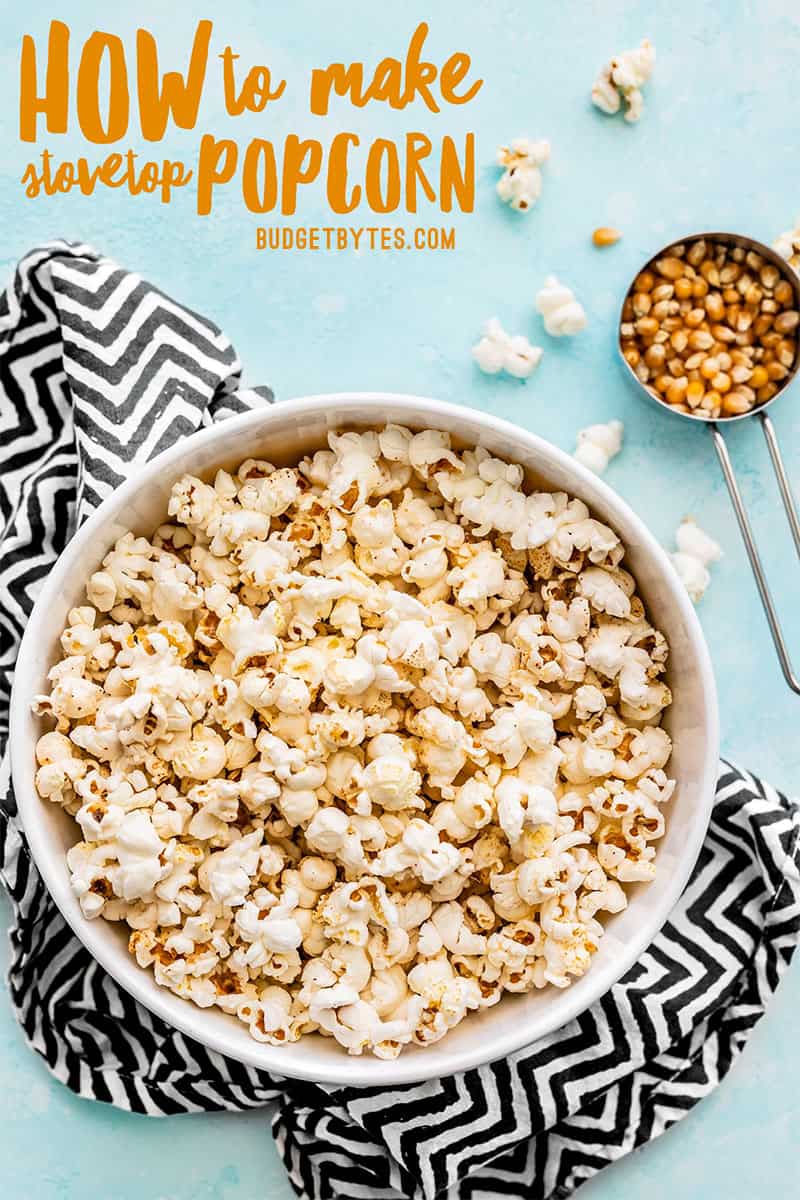
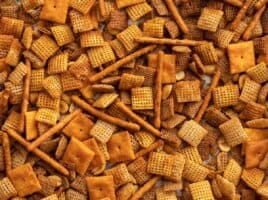
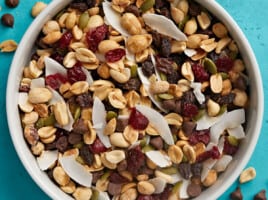
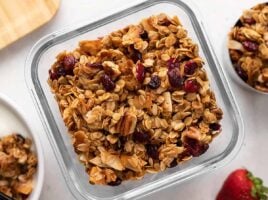
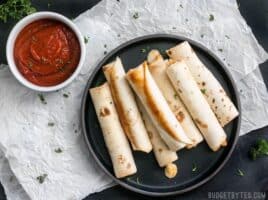
This is great, and I can’t go back to microwave popcorn! :-) One modification that I found works well for butter flavor without extra fat is to use ghee for the cooking oil. Ghee (clarified butter often used in Indian cooking) can withstand higher heat; because the milk solids have been removed it has a higher smoke point. The butter flavor gets cooked in, and there’s no need to add extra butter afterward.
P.S. This is my first time commenting. I’ve grown to really like Budget Bytes, which has helped me along my cooking journey!
Easy peasy! I followed instructions, and it turned out perfectly!
I made it exactly as instructed (medium high heat, folks, not high heat) and it turned out perfectly. I used peanut oil (which people in the south use to deep fry turkeys, so it can handle the heat) I haven’t made popcorn on the stovetop in at least two decades so I was a little nervous. I needn’t have been.